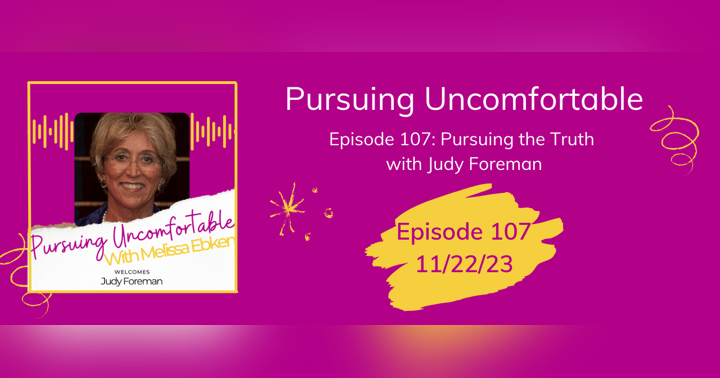Overcoming Habitual Drinking: A Journey of Self-Reflection with Sean Robinson

Being uncomfortable can be a good thing, especially when it means changing for the better. In this episode of Pursuing Uncomfortable, host Melissa talks to author and speaker Sean Robinson about overcoming habitual drinking and breaking patterns that no longer serve us. Robinson's journey is one of perseverance and self-reflection, and it serves as an inspiration to anyone looking to make positive changes in their lives.
Robinson's story began with acknowledging the negative impact that alcohol was having on his life. From his upbringing, alcohol was always present and accepted, leading him to believe that it was a necessary part of socializing and being a good host. However, he realized that it was always a part of his life, and decided to remove it for a healthier lifestyle.
This decision came with many challenges. Robinson reflects on the pressures of maintaining drinking habits with his circles. He felt that by changing his habits, he was losing some relationships, but it was important to accept that in order to move forward. Robinson shares his experience with changing his drinking habits and how it impacted his relationships. He wrote a book called "Going Dry" about hisjourney to inspire and support others who may be facing similar struggles.
Robinson's vulnerability and honesty during the podcast episode is accessible and relatable. He discusses struggling with weight and drinking, feeling the effects of generational patterns, and finding himself in a dark place where he felt he had to fix things himself without help. However, after giving himself permission to stop drinking, he was able to pursue other challenging growth habits like reading books, listening to podcasts, and exercising.
One of the ways Robinson found success was by breaking down his larger goal of not drinking for the entire year of 2021 into smaller goals, such as committing to 100 days of sobriety after participating in Dry January and Dry February. Robinson's attitude and energy levels improved, and he lost 100 pounds by not snacking as much. He has remained sober and developed strategies for being around alcohol without drinking, such as pouring non-alcoholic drinks into a different cup.
Robinson's focus on the power of habits and routines is a valuable takeaway from the episode. He learned that it takes about 21 to 100 days to break a habit, and he used tools such as habit tracking and reading about different habits to make positive changes in his life. Robinson emphasizes that anyone has the capacity to make positive changes, it's just a matter of finding the right thing that works for them.
He also talks about the importance of having a mechanism to simulate the common movement of drinking that everyone else is doing, which takes the pressure away from everyone around. Robinson shares his experience of ordering non-alcoholic drinks at a restaurant, which made others around him feel awkward and unsure of how to handle the situation. This discussion highlights the need for more comprehensive options for non-drinkers in social situations, and provides a starting point for a broader conversation.
Robinson's reflection on toxic masculine environments and stepping away from them is also valuable. He suggests that by making a personal choice, he has inspired others to follow suit. Robinson demonstrates that standing out for one's beliefs will often find support in the wider group. His background growing up in a working-class construction family, with a mechanic dad gives insight that toxic masculinity is not only prominent in specific industries, but also in particular cultural contexts.
In conclusion, Sean Robinson's journey with overcoming habitual drinking is one that is relatable and inspiring. His approach to focusing on small positive habits and breaking patterns is a valuable takeaway for anyone looking to make positive changes in their lives. Robinson's vulnerability and honesty are a reminder that we are all human and that uncomfortable decisions can lead to growth and betterment. Pursuing Uncomfortable is a podcast that explores the idea of embracing discomfort and using it as a vehicle for growth and change, and this episode is a great example of that ethos.






